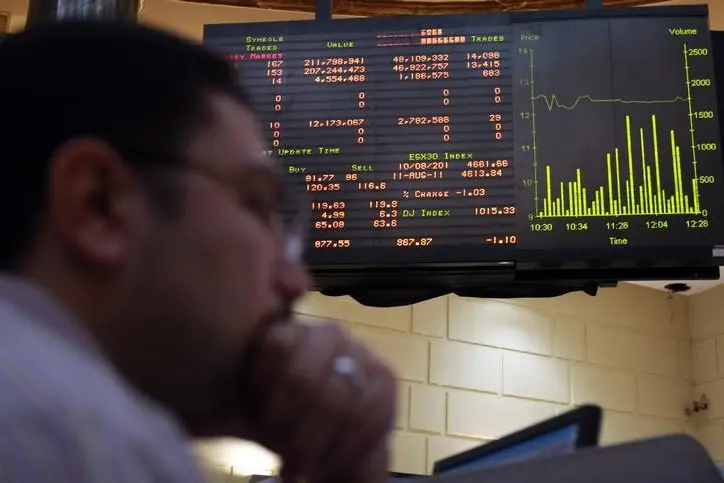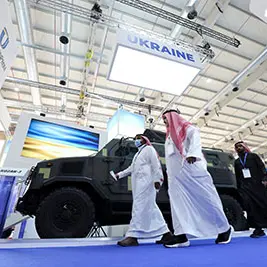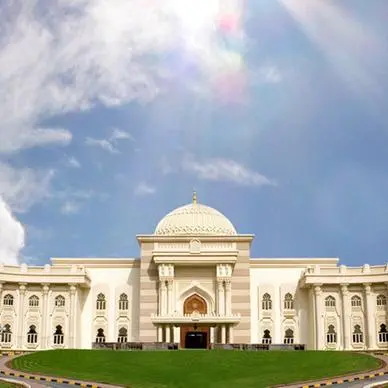PHOTO
Can Egypt and other similar economies survive mega-regional trade agreements, asks Magda Shahin
Regional trading agreements are being crafted seemingly in parallel with the multilateral trading system. Or at least this is what economists would like to have us believe amid the recent trend towards negotiating mega-regional trade agreements.
In practice, the mega-regionals agreements will supersede the World Trade Organisation (WTO) negotiations and even render them irrelevant. The Trans-Pacific Partnership Agreement (TTP) and the Trans-Atlantic Trade and Investment Partnership Agreement (TTIP), where the US is the sole common member in both, are in the last phases of their negotiations.
These two agreements are becoming priorities for the Obama administration, after having secured fast-track authority in the US Congress. This empowers the administration to pass negotiated trade agreements through Congress by an overall yes or no vote, with the Congress giving up the right to scrutinise the agreements article by article.
It is imperative for developing countries, including Egypt, to devote extra attention to these agreements, not with the intention of thwarting them, but rather to understand where they are heading and how they may affect the multilateral trading system and its members.
Some would like to see the new mega-regional agreements as an attempt to streamline the larger array of regional agreements, the "spaghetti bowl", as it has been labelled by the well-regarded economist Jagdish Bhagwati.
Others, more convincingly, believe that the agreements are intended to dodge what has become the archaic and standstill negotiating function of the WTO within the framework of the Doha Development Agenda.
The negotiation of the Trans-Atlantic Trade and Investment Partnership Agreement (TTIP) between the United States and the European Union and the Trans-Pacific Partnership Agreement (TPP) would create two integrated markets, each accounting for at least 40 per cent of global trade.
These two agreements would dwarf the role of the WTO in trade liberalisation and in rule setting. TPP members include Australia, Brunei, Canada, Chile, Japan, Malaysia, Mexico, Peru, Singapore, New Zealand, the US and Vietnam.
Moreover, these mega-regionals could cause real problems to countries that are not party to them.
First, they could lead to trade diversion and discrimination against nonmembers, and second, they could shape the international trading policy framework without providing developing countries with a mechanism to voice their views.
These two mega-regionals would ensure that the US and the EU remained standard-setters in the global economy, instead of sharing such a role collectively with other WTO members.
Subsequently, producers worldwide would continue to gravitate towards joint US-EU standards, which would not necessarily be in line with developing countries' interests and could adversely affect their ability to expand their own trade.
Furthermore, the mega-regionals go well beyond tariff negotiations. They are focused on dealing with behind-the-border regulatory and market issues, such as competition policies, investment regulations, standards, intellectual property rights, customs regulations and trade facilitation. Most of these behind-the-border issues go far beyond the scope of today's WTO coverage.
There is also no possibility of stopping the mega-regionals. There is no point in going into the pros and cons of these agreements, as there is an equally important body of literature that attests to the synergies they add to the WTO as there is to the literature on the deeper and wide-ranging discrimination they carry against nonmembers.
In other words, the agreements can function as both building blocks and stumbling blocks to the multilateral trading system at the same time. They can fuel more liberalisation and tap novel ideas that could eventually be multilateralised. However, they are likely to undermine "most-favoured-nation" treatment by taking discriminatory actions against nonmembers.
When the Uruguay Round of trade liberalisation was praised, it was for producing an all-inclusive system, orchestrated in a single undertaking, that stipulated that nothing was agreed until everything was consensually agreed. There was no opportunity for free-riders, and no members were more equal than others.
But what was meticulously built in the Uruguay Round is now being defeated by the mega-regionals, which are moving ahead and leaving the rest of the world behind. This is certainly not a good omen for the multilateral trading system.
The TPP Agreement grew in importance with the Obama administration's shift towards Asia. For the US administration, it is of geopolitical concern, particularly in regard to the growing power and influence of China. Although not a party to the TPP, China remains the elephant in the room.
What may sound scary here is the inclination to use the mega-regionals for purely political purposes, and it is not groundless to say that there is a predisposition to keep China out of the TTP and to enact controls on its trade expansion in the region.
If this is true, then the least one can say is that the trading system is reverting back to a power-based system, contrary to the rule-based multilateral trading system negotiated in good faith in the Uruguay Round. A power-based system is more likely to incite beggar-my-neighbour policies between regionals than the one experienced during the Great Depression.
But today the TPP, building on Obama's legacy, is a foregone conclusion, especially in light of the "trade promotion authority" approved by Congress on 25 June.
The question arises as to what alternatives are available to countries left behind by the agreements, notably Egypt.
The mega-regionals contradict the rule-based system of the WTO, as they go against its basic principles of most-favoured-nation treatment and non-discrimination. However, these developments must now be taken as a given. What is expected to change is the WTO, and from within.
To keep pace with the dynamics of the new situation, the multilateral trading system will need once again to tolerate a "two-speed approach" with an ever-increasing gap between those who are part of the system and those who will be marginalised even further.
The "coalition of the willing" created by the US at the political level seems to have found its way into the trading system too. Deals will be forged between those who can do so, and a coalition of the willing within the WTO will revive what has long been dead and buried, namely limited "plurilateral" agreements to the detriment of those not party to them.
There are, however, other alternatives triggered by the developing countries themselves, such as the African Tripartite Free Trade Area (TFTA). Announced in June in Sharm El-Sheikh, the TFTA includes the three largest regional economic communities: the Common Market for Eastern and Southern Africa (COMESA), of which Egypt is a member, the East African Community (EAC) and the Southern African Development Community.
It is an intelligent and courageous move by the African continent, and it should also serve as a prelude to a continental free-trade agreement by 2017 and, ultimately, to a continental customs union by 2019.
Egypt will have to push for such African mega-regional trade agreements to come to fruition, as otherwise its trading prospects will look bleak. In addition, Egypt will have to become more competitive in order to earn its rightful place in this new African mega-regional agreement.
As for the Arab region, which continues to lag behind on regional cooperation, it has no alternative apart from getting its act together and reaching out to others, if only with a view to the partial integration of those countries that can afford to do so.
The institutions are all in place. They just need to be activated for the Greater Arab Free Trade Area (GAFTA) process to resume in earnest.
The writer is director of the Prince Al-Waleed Centre for American Studies and Research at the School of Global Affairs and Public Policy at the American University in Cairo.
© Al Ahram Weekly 2015





















